From Sister Sledge to the Carpenters to the Jackson 5, performers frequently find talent within their own family tree. The same holds true at Eurovision, where family acts often fare very well. Two brotherly acts have won the contest: Swedish boyband The Herreys in 1984 and Danish group The Olsen Brothers in 2000. But some artistic families stretch across several generations. So, in honour of love and the ties that bind us, we’re celebrating well-known and at times legendary artists who are the ancestors of our beloved Eurovision stars.
Did you know that Eurovision 2011 winner Eldar Gasimov counts a celebrated actor in his family? Or that Ukraine’s hamster wheel singer Mariya Yaremchuk and Malta’s singing doctor Gianluca Bezzina‘s had artistic relatives who challenged the artistic status quo during their time? Sweden’s Benjamin Ingrosso and Russia’s Philipp Kirkorov don’t just have loving parents — they have moms and dads who paved the way to stardom.
Gianluca’s grandfather Gaetano Buttigieg
It’s almost common knowledge that singing doctor and Eurovision 2013 star Gianluca Bezzina is part of a musical family. In 2015, the Bezzina sibling band L-Aħwa submitted “Beautiful to Me” to the Maltese preselection.
But two generations prior, his grandfather Gaetano Buttigieg, also known locally as Gaetano Kanto, was already forging his own artistic path. Buttigieg pioneered the translation of popular Italian and English songs into the Maltese language.
According to Eve, Buttigieg completely challenged the then principle that the Maltese language, which is closely related to Arabic, was not suitable for these types of songs. Buttigieg’s interpretations became famous in the 1950s and 1960s, and nowadays they’re considered his biggest legacy.
Benjamin Ingrosso’s mother Pernilla Wahlgren
Ever since Pernilla Wahlgren hit the high notes in “Piccadilly Circus”, the Swedes have been sold. Over the decades, Pernilla has participated in more than one Melodifestivalen, Sweden’s largest music competition and its long-time Eurovision preselection.
But she is not just a Melodifestivalen veteran, but a skilled actress who has starred in countless plays. She’s twice received a Guldmasken, the country’s most prestigious theatre award. And her acting is not limited to the stage. She played the role of Esmeralda in Fanny och Alexander, which received an Oscar for Best Foreign Language Film.
In recent years, she and her family, among them Eurovision 2018 contestant Benjamin Ingrosso, have been followed in the reality series Wahlgren’s värld. The show is said to be Sweden’s closest thing to Keeping Up With The Kardashians with its successful star “mother” in the centre of it all.
Mariya Yaremchuk’s father Nazariy
If you know anything about Nazariy Yaremchuk, then you know he faced several setbacks at a young age. However, his love of music and his homeland, combined with a strong ability to persevere, led him to become one of the lead singers of the VIA Smerichka by 1969.
After the release of the musical film Chervona Ruta in 1971 — in which Nazariy starred alongside Sofia Rotaru and fellow Smerichka lead singer Vasyl Zinkevych — the group became famous throughout Eastern Europe. Soon after, Nazariy became the first Ukrainian artist to sing at the annual Song of the Year festival in Moscow.
A face of Ukrainian counterculture, Yaremchuk’s repertoire of exclusively Ukrainian-language songs remains celebrated to this day with highlights including “Stozhary”, “Hai, zelenyi hai” and “Nezrivyaniy svit krasy”. He was among the first to popularise Volodymyr Ivasyuk‘s songs “Chervona ruta” and “Vodohrai”, which have since been covered by Ukrainian Eurovision and Vidbir stars such as Tayanna, Ani Lorak and Serhii Babkin. In 2015, Eurovision 2014 sixth-place finisher Mariya Yaremchuk honoured her late father by covering his song “Rodyna” (meaning “family”).
Philipp Kirkorov’s father Bedros
Bedros Kirkorov was born in Varna, Bulgaria, to an Armenian family. Although his parents sang in the local Armenian choir, they did not have any professional music credentials. Philipp Kirkorov, Bedros’ father, was a full-time shoe maker.
Bedros Kirkorov thought of following in the footsteps of his father, but his love for musical artistry was stronger than his desire to turn out a loafer. He eventually moved to Yerevan and then on to Moscow, the biggest Slavic pop — or estrada — scene at that time.
Although his son Philipp went on to become far better-known, it’s safe to say that Bedros set a path for him. Coming as a foreigner to Moscow and establishing a music career is no easy feat, but Bedros pulled it off. It also helped his son to get acquainted with the musicians that would shape Philipp Kirkorov’s musical style, as Philipp traveled with his father on his tours as a child and young man.
Nowadays, Bedros Kirkorov still performs. And sometimes alongside his son too! Recently they went viral on TikTok for recreating a fifty-year-old picture of themselves.
Eldar Gasimov’s great-grandfather Abbas Mirza Sharifzadeh
Born in 1893, Abbas Mirza Sharifzadeh lived through the early age of film. The Azeri actor and performer made a huge name for himself at the start of the twentieth century. Stepping on the stage, aged 9, he launched what would prove to be a very impressive career. As early as the mid-1910s, when the first commercial cameras were made, Sharifzadeh committed himself to becoming a director.
Dubbed the “great actor of tragedies” for his many interpretations of Shakespearean pieces such as Hamlet, Othello and Macbeth, Sharifzadeh became an important actor in Azerbaijan. In the West of Baku, a street still bears his name. Curiously, it’s not that far from the Eurovision 2012 venue.
Abbas Mirza Sharifzadeh isn’t Eldar’s only artistic ancestor. His grandmother Firangiz Sharifova and his great-grandmother Marziyya Davudova featured in stage and theatre plays.
Were you already familiar with any of these names? Who should we include in a next instalment of this series? Let us know in the comments below!
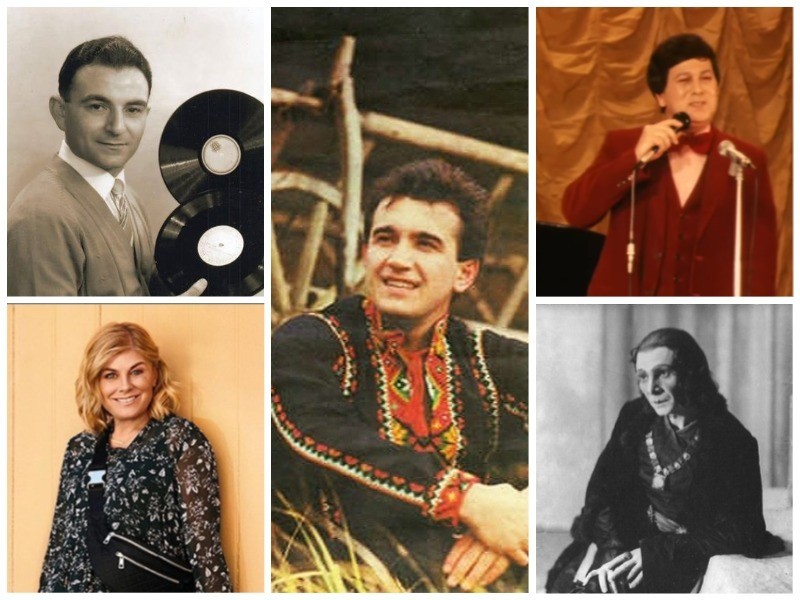
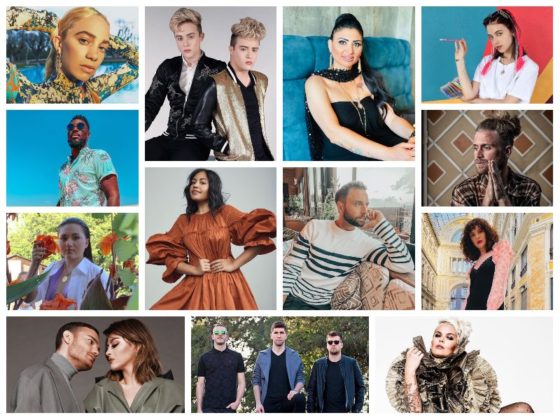
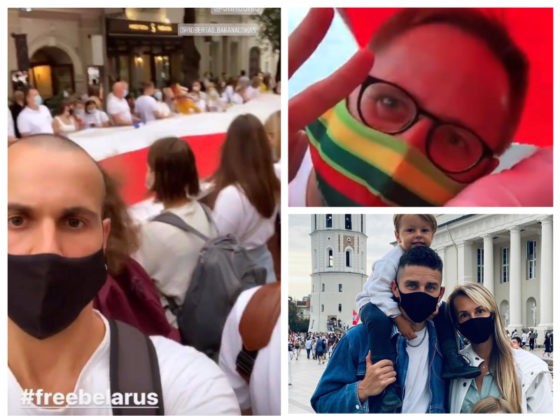

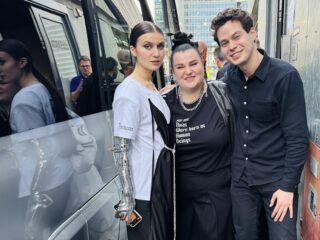
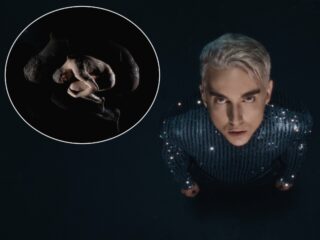


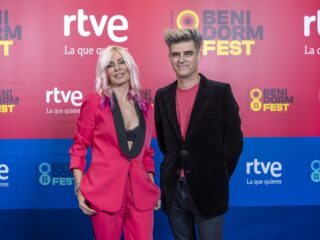
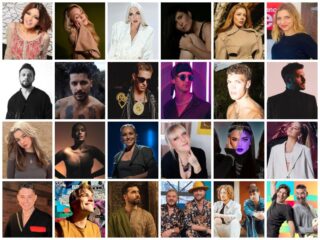
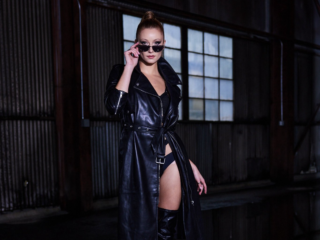
This was mentioned in an article here from earlier this year: Benjamin Ingrosso and Diodato are not-so distant relatives, with the latter having worked with another Ingrosso cousin, Swedish House Mafia’s Sebastian Ingrosso, when he was in Sweden for a time.
As a correction, (I don’t speak Ukrainian) but I don’t think “rodyna” means family. It means motherland in Russian, it’s probably the same in Ukrainian as well.
No, everything is correct in the article. Motherland in Ukrainian will be “Bat’kivshchyna”.
Oh, my bad. Didn’t know that. Thank you.
Lena Meyer-Landrut’s grandfather was (West) Germany’s ambassador to the USSR in the 1980s…I imagine that took some performing, considering the circumstances.
Here’s a list of all the interesting Eurovision family connections I could find (excluding the ones mentioned in the article and comments): – Michele Arnaud (LUX 56) mother of Dominique Walter (FRA 66) – Alice Babs (SWE 58) mother of Titti Sjoblom (Mello 74) – Lill-Babs (SWE 61) married to Lasse Nerghagen (Mello 74) – Pat McGuigan (IRE 68) father of Barry McGugan, world boxing champion – David Alexandre Winter (LUX 70) father of Ophelie Winter, famous singer and actress – Julio Iglesias (SPA 70) father of Enrique Iglesias, latin pop singer – Mary Roos (GER 72) married to Werner… Read more »
Patrick Fiori? Like, “Mama Corsica” Patrick Fiori? He also did Eurovision! Finished in the same place as Lara, too.
Also Anna Vissi represented Greece in 1980.
Yep. And Mary Roos has also represented Germany in 1984. Sorry for that.
You’re right, I can’t believe I forgot about it, which is a shame, since I really like that song (god, 1993 was a great year for Eurovision). Well, it’s 5 o’clock in the morning, so I’ll just blame it on my drowsiness.
Fair enough! I like it too. It gets slagged on a bit for being weaker than the rest of the top five or France’s otherwise adventurous run of entries in the ‘90s, but it’s got a lovely melody and he performs it well. ‘93 kicked off about five years of really exceptional contests.
If I had to pick the weakest link in the golden chain of France’s ’90s entries, I’d probably have to go with “Diwanit Bugale”. It’s a sweet song and I admire France for having balls to send an entry in Breton to Eurovision, but it was… not very entertaining, to put it nicely. Thankfully, next year we got “Sentiments songes”.
I like that one too. I’d probably call it weakest of the bunch, but it’s still a song I listen to fairly often. The best would be either White and Black Blues or Monte la rivie.
It’s “Je suis un vrai garcon” for me, but I love the two you’ve listed as well, especially the former. When it comes to Eurovision, you just couldn’t go wrong with a song penned by the musical genius, Serge Gainsbourg.
Do you think his daughter Charlotte would be right for the contest? I’d like to see her there.
I’m more familiar with her acting roles (she was excellent in “Antichrist”) than her music, but from what I recall her songs have a nice electronic feel to them and are catchier than you’d expect from an avant-garde artist. I really enjoy her voice and the way she uses it in her compositions. I doubt she’d be willing to take part in Eurovision, but I wouldn’t mind her representing France.
Her style can change – Beck wrote and produced one of her albums, and she worked with Paul McCartney on her last one…but yeah, like you say, it’ll probably never happen.
I believe he only did the lyrics, but they were great lyrics. Watching it in the context of France coming off a decade of very safe, old-fashioned entries, it’s a giant breath of fresh air, and it’s still a really exciting performance to watch today (especially that incredible bridge). I’d go so far as to call it France’s best entry.
As a hobby, I translate Eurovision songs’ lyrics to Polish on a lyrics database site, and “White And Black Blues” is one of the few that I would classify as poetry. The verses are pure magic. No offence to Toto, but in my opinion this should’ve been the winner of ESC 1990.
Italy was awesome that year, but yeah, I’m inclined to agree. Should’ve been a clear second, too, and not joint-second with a pretty standard-issue Irish ballad (the song Liam Reilly wrote for Kim Jackson the next year was much better). There are also three major underrated gems from that year in the form of Belgium, Israel, and the Netherlands. How none of them made the top ten and the UK did is beyond me.
I fully agree on the Netherlands (it’s like a way better version of Spain’s entry from the previous year), I think Belgium’s just fine and I could never get into the Israeli song, the inconsistence, poor vocals and lack of a clear melody or structure irritate me a lot. Personally, I would add Norway, it’s really fun and energetic and the chorus is such an earworm. Granted, it’s a bit cheesy, but I still can’t understand why it finished last.
Disagree about Israel, but that polarization might be a good reason why it didn’t do so well. Norway was fine, but I like “Romeo” way better.
If I had to rank them, it’d be:
We disagree and it’s OK, different opinions make life more fun. My top would look something like this:
Four of our top five are the same, that’s pretty neat!
I totally agree, France should have won! It even got the most 12s, two more than Italy. Maybe Ireland were helped by naming half of Europe in its song, and Italy by its happy EU message. All of Italy’s 12s came from other EU members. The UK, of course, gave it 0…a sign of things to come…
Norway gave it 0 as well, and they cofounded the European Trade Market, so you might be on to something (it also only got 1 from Israel and 3 from Iceland. Then again, notable non-members Switzerland and Turkey both gave it eight points). But then again, the UK themselves got 12 from Belgium, 10 from France, and 6 from Italy, three of the founder states. (Fun fact: six of the seven founding Eurovision competitors were also six of the seven founding EU members; the exception being Switzerland).
Well…that’s just like the Brexit negotiations. The UK want everything from the EU, but to give nothing in return. Maybe I’m taking the comparisons too far now… 🙂
Reading too deep into things is a Eurovision fandom membership clause lol
Lara dated Patrick in the late 90s … a short romance that did not last cause celebrities dating and media loving the scrutiny don’t go well together …
Johnson brothers represented UK separately – in 1959 and 1960.
Steve Bender, part of Dschinghis Khan (Germany 1979) was a father of Melanie Bender from MeKaDo (Germany 1994).
Philipp Kirkorov and Alla Pugacheva (Russia 1995 and 1997) were married.
Anna Maria Jopek (Poland 1997) is married to journalist Marcin Kydrynski. His father Lucjan was a presenter in music festivals, including Sopot, while Marcin’s mother was Halina Kunicka, famous singer who covered ESC winner of 1973 in Polish.
Tanel Padar (Estonia 2001) and Gerli Padar (Estonia 2007) are sibilings. Tanel was involved with Ines (Estonia 2000).
Hara and Andreas (Cyprus 1997) are sibilings of Constantina (Cyprus 1983).
Justyna Steczkowska (Poland 1995) is sister of Magda Steczkowska who was her backing vocalist during ESC and then competed in Polish National Final as part of Indigo in 2004.
Malena Ernman (Sweden 2009) is a mother of Greta Thunberg.
Estibaliz (Spain 1975) had sister and brother in Mocedades (Spain 1973). She and her husband/co-performer Sergio were in that group until 1972.
It’s cool to think there’s at least one famous person who’s the daughter of a Eurovision representative: Greta Thunberg, as has been noted several times over, is the daughter of 2009 representative Malena Ernman! Off the top of my head, there’s also Julie Forsyth, daughter of popular British entertainer Bruce Forsyth, who wasn’t a performer but wrote Scott Fitzgerald’s “Go” in 1988 and sang backing vocals (and her connection to Papa Forsyth was noted plenty of times). Interesting side note, because ’88 made me think about it a bit: how many Eurovision stars have also done commentary for their country?… Read more »
I’m pretty sure that Charlotte Perrelli (the 1999 winner) is some kind of a relative of Benjamin Ingrosso as well, isn’t she?
I think they’ve also given an interview together to Wiwibloggs
I think? And keeping it in the Eurovision winners’ circle, Benjamin talked about watching the 2009 final at Carola’s house when he was being interviewed with Alexander Rybak.
Within Eurovision veteran circles, there is of course Svala, daughter of 1995 representative Bo Halldorsson, carrying on the family legacy in 2017 (and Bo dropping in to announce Iceland’s 12 points).
(Speaking of 2017 spokespersons: gotta love how Katrina was announcing another 12 points to Portugal when they came last with zero points the year she won!)
Just imagine watching the contest with a winner xD Amazing
And I think Ryan o’Shaughnessy’s (I tried so hard writing his name correctly) uncle represented Ireland in 2001
Lots of families in the contest xD
He’s her nephew by marriage.
Technically, they’re no longer related (Charlotte divorced Nicola Ingrosso, Benjamin’s uncle, in 2009) but I’m pretty sure they’re still close.
She was married to his uncle and their children are cousins with benjy. They are no longer married but she is still close with Benjy because she and Pernilla has been friends for ages! She even went with him to Lissabon!, and they still consider each other as family!
Interesting!
I suppose we can include Benny Andersson’s son Peter, who represented Sweden in 1996 – alongside his wife Nanne, Benny’s daughter-in-law.
Jacqueline Boyer, winner in 1960, was Edith Piaf’s stepdaughter for about five years. Her father, Jacques Pills, represented Monaco in 1959.
France Ruffelle’s mother set up a famous acting school in London, the Sylvia Young Theatre School.
Oh, I almost forgot Romina Power! Italy 1976 & 1985. Daughter of one of the most famous actors of the 1940s, Tyrone Power.
I believe two Maltese singers with the last name “Faniello” also participated at Eurovision. I don’t remember their first names, but I think they were uncle and niece.
They would be Fabrizio and Claudia Faniello. They are brother and sister.
And Frances Ruffelle’s daughter is singer Eliza Doolittle of ‘Skinny Jeans’ fame.
This makes me like Kirkorov a bit more.